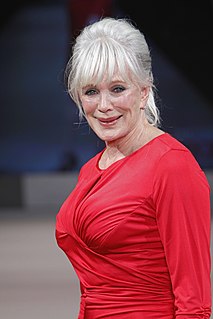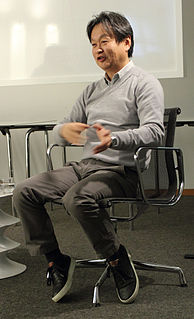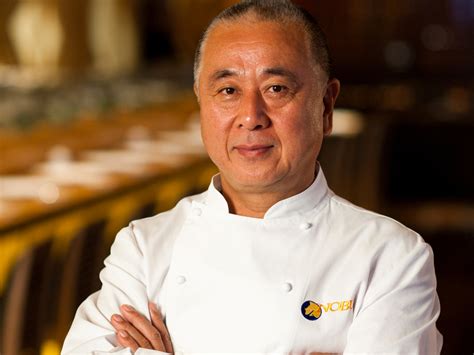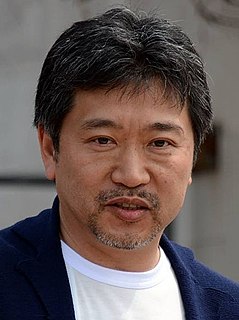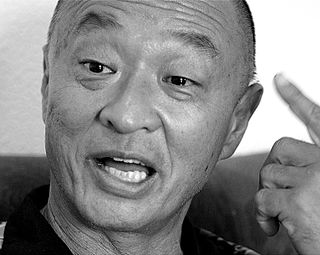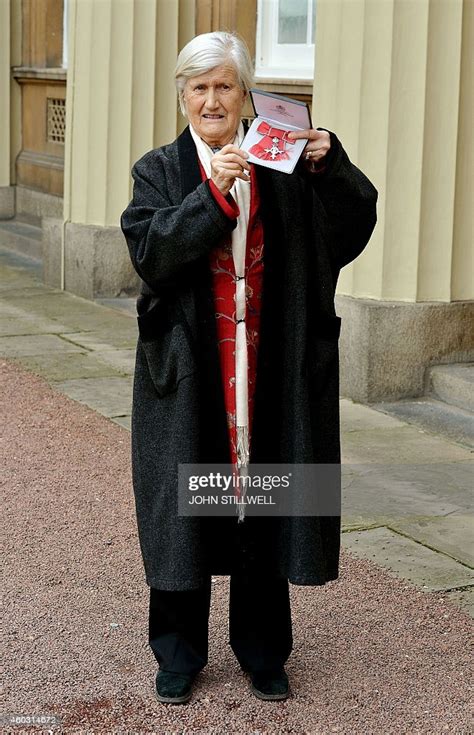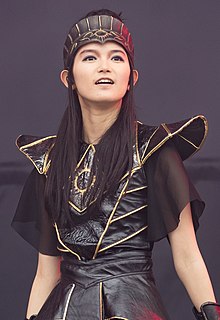Top 1200 Japanese Gardens Quotes & Sayings - Page 3
Explore popular Japanese Gardens quotes.
Last updated on December 22, 2024.
It's pretentious to say, but my art is like a little Zen story, a story with a question mark at the end. People can take from it what they need. If somebody says, "Your art is very funny," I say, "You are totally right." If somebody says, "Your art is very sad," I say, "You are totally right." In Japan they say, "Your art is very Japanese, you even look Japanese.Your great-grandfather was most surely a Japanese man." And I say, "You are totally right."
God was fair to the Japanese. He gave them no oil, no coal, no diamonds, no gold, no natural resources — nothing! Nothing comes from the island that you can sustain a civilization on. What God gave the Japanese was a sense of style—maintained through the centuries through hard work and the disciplines of ambition.
But where only a free play of our presentational powers is to be sustained, as in the case of pleasure gardens, room decoration, all sorts of useful utensils, and so on, any regularity that has an air of constraint is [to be] avoided as much as possible. That is why the English taste in gardens, or the baroque taste in furniture, carries the imagination's freedom very far, even to the verge of the grotesque, because it is precisely this divorce from any constraint of a rule that the case is posited where taste can show its greatest perfection in designs made by the imagination.
Some years ago our Japanese counterparts asked us to resume the discussions of the issue and so we did meeting them halfway. Over the passed couple of years the contacts were practically frozen on the initiative of the Japanese side, not ours. At the same time, presently our partners have expressed their eagerness to resume discussions on this issue [the Kuril Islands].
When the poet's sentiments are overly visible, the audience may become uncomfortable. Japanese ritual is the opposite. By writing simply and only about what is there, the audience is drawn into the poet's world. Their imagination is stimulated, and a silent connection is established. I believe this is where the most important aspect of the Japanese sense of beauty lies.
In the early 1940s, as a young teenager, I was utterly appalled by the racist and jingoist hysteria of the anti-Japanese propaganda. The Germans were evil, but treated with some respect: They were, after all, blond Aryan types, just like our imaginary self-image. Japanese were mere vermin, to be crushed like ants.
In all places where there is a Summer and a Winter, and where your Gardens of pleasure are sometimes clothed with their verdant garments, and bespangled with variety of Flowers, and at other times wholly dismantled of all these; here to recompense the loss of past pleasures, and to buoy up their hopes of another Spring, many have placed in their Gardens, Statues, and Figures of several Animals, and great variety of other curious pieces of Workmanship, that their walks might be pleasant at any time in those places of never dying pleasures.
Think of the sushi trend that started in the '80s. It was as much about the Nintendo entertainment system in your living room as it was about the availability of good-quality raw fish. The Japanese food trend rose as the world of Japanese business and culture was becoming a bigger part of American life.
My colleagues and I are of that generation of young men who went through the Second World War and the Japanese Occupation and emerged determined that no one–neither Japanese nor British–had the right to push and kick us around. We determined that we could govern ourselves and bring up our children in a country where we can be proud to be self-respecting people.
I don't believe in making movies to cater to a foreign audience. You never know what the reaction is going to be anyhow. At the time I made Maborosi, the Japanese movies getting any foreign attention were all period dramas and seemed to be about some representative element of Japanese life, and my movie was contemporary movie about one specific woman trying to understand her husband's suicide.
I envision a day when every city and town has front and back yards, community gardens and growing spaces, nurtured into life by neighbors who are no longer strangers, but friends who delight in the edible rewards offered from a garden they discovered together. Imagine small strips of land between apartment buildings that have been turned into vegetable gardens, and urban orchards planted at schools and churches to grow food for our communities. The seeds of the urban farming movement already are growing within our reality.
People who spend a great deal of time in their gardens attest to the natural mindfulness that gardening requires. What could be more naturally mindful than weeding? It requires a great deal of sustained attention. Weeds need to be taken up with care: Pull too hard, and the weed breaks in your fingers, leaving the root to grow and spread. Different weeds need different techniques and, sometimes, tools. When we weed our gardens, we have to pay attention to where and how we walk and bend. Move too far in one direction or another, and we'll squash growing things.
Because we're becoming such an urban nation, we're going to need to be producing so much more food in cities. These institutions have members, obviously. They have the resources to start projects like urban farms and gardens, teaching tools, and the ability to educate their members so that they can then go home and start their own urban gardens. I just really think that faith-based institutions can take the lead in creating community-based food systems, and I'd really like to see that happen.
A very enjoyable meditation on the curious thing called 'Zen' -not the Japanese religious tradition but rather the Western clich of Zen that is embraced in advertising, self-help books, and much more. . . . Yamada, who is both a scholar of Buddhism and a student of archery, offers refreshing insight into Western stereotypes of Japan and Japanese culture, and how these are received in Japan.
These people looked Japanese, were originally Japanese, were numerous. We had no way of knowing to what extent they had been infiltrated. To their great credit, it seems not to have been very much at all. But I can understand why. And I rather respect Eleanor for standing out against the tide at that point. But it certainly was a tide. And I'm not going to say it was unjustified.
New York allows you to go deeper into the person you want to be. You're able to explore whatever your specific interests might be. You can eat good Japanese food if you want to eat good Japanese food. You can go and see your favorite author reading, and you can still listen to Radio Ulster on the internet as you have your breakfast. I love that.
Imagine what I could have done in ten years. I could have learned to speak Japanese. I could have played every RPG video game ever created, and if I spoke Japanese I could have played the foreign ones too! Man, I could have built a spaceship in my backyard and flew it to the moon and back, if I wanted.
The first western gardens were those in the Mediterranean basin. There in the desert areas stretching from North Africa to the valleys of the Euphrates, the so-called cradle of civilization, where plants were first grown for crops by settled communities, garden enclosures were also constructed. Gardens emphasized the contrast between two separate worlds: the outer one where nature remained awe-inspiringly in control and an inner artificially created sanctuary, a refuge for man and plants from the burning desert, where shade trees and cool canals refreshed the spirit and ensured growth.
Steven Erikson is an extraordinary writer. I read Gardens of the Moon with great pleasure. And now that I have read it, I would be hard pressed to decide what I enjoyed more: the richly and ominously magical world of Malaz and Genabackis; the large cast of sympathetically-rendered characters; or the way the story accumulates to a climax that hits like machinegun fire. My advice to anyone who might listen to me is, Treat yourself to Gardens of the Moon. And my entirely selfish advice to Steven Erikson is, write faster.
Very often people who live in a ghetto accept some of the stigmatisation against them. I mention the case of a Japanese minority the Burakumin, which was pure Japanese in descent, but which was concerned with dirty work: leather work, cadavers, and some other things.There was a famous story of an old man who asked: 'Do you yourself believe you are the same as the Japanese?' And the outsider said: 'I do not know, we are dirty.' This kind of conscience was never there in the surroundings in which I lived. One always felt as someone whom could be proud of, being both German and Jewish.
Shin [Biyajima] rides down with this big ol' Japanese grin and giggle and I'm like what? Two years later, when I started planning the trip, I knew Shin was from the Hakuba area, and I didn't want to come film in Japan without a Japanese rider. Shin had the time and availability, and it worked out perfect.












